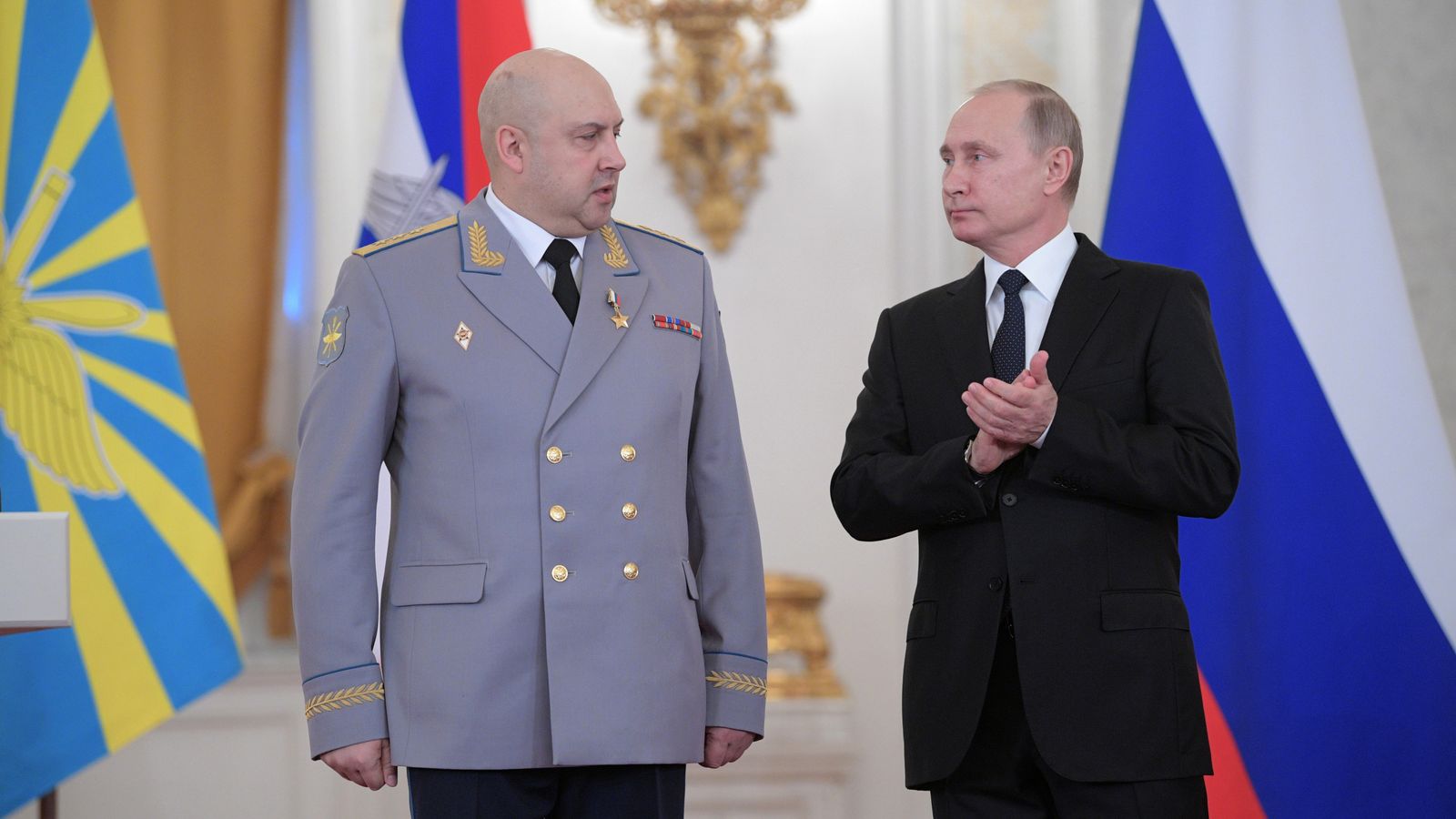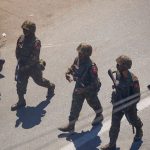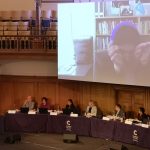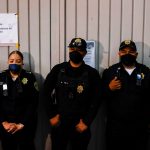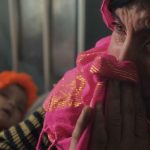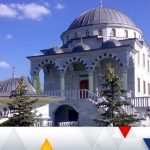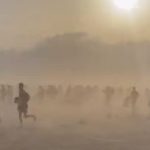Within minutes of the first reports around Monday’s early morning missile strikes on the centre of Kyiv, one name began to dominate discussion of Moscow’s shifting military tactics.
While a severe response from Russia had been widely anticipated following explosions that caused the partial collapse of the bridge linking it to Crimea, the bombing of Ukraine’s capital appeared to bear all the hallmarks of Sergei Surovikin.
A military veteran who served in the Soviet Union’s ultimately doomed war with Afghanistan during the 1980s, he was appointed on Saturday as the commander of Russia’s invading forces in Ukraine.
The 55-year-old is infamous for ordering troops to open fire on pro-democracy protesters in Moscow, when three people were killed during the final days of the Soviet Union in 1991.
He went on to lead Russian forces’ intervention during the Syrian War in 2017.
Gen Surovikin is accused of complicity in the indiscriminate bombing of opposition fighters and of overseeing chemical weapons attacks, in a campaign thought to have been pivotal in helping Syria’s government regain control over most of the country.
The consensus among experts is that Vladimir Putin‘s decision to have him take charge of Russia’s forces in Ukraine is a direct result of his reputation for ruthlessness and brutality.
Ukraine war: What do satellite images of the Kerch Bridge explosion tell us about the cause of the blast?
Vladimir Putin says missile strikes across Ukraine are in retaliation for Crimea bridge ‘terrorist’ blast
Ukraine war: Dozens of missiles hit Kyiv and at least eight people killed
Military analyst Forbes McKenzie, head of McKenzie Intelligence, told Sky News the main reason for his appointment was Gen Surovikin’s “brand”.
“He’s seen as a hero of the former Soviet Republic,” he said.
“He has shown his ability to wage a war that involves nuclear, biological and chemical weapons, the last of which he used in Syria.
“Putin’s regime has repeatedly issued threats over recent weeks of using a nuclear option. We need to think about what the capability is, the intent and the opportunity.
“So they have already signalled their intent, but they would need commanders who would have the capability to do it.
“This is a man who has used chemical weapons in recent history, so that demonstrates capability.”
Putin’s power struggle
Mr McKenzie said another factor in the appointment is likely to be how it will affect the power struggle around the Kremlin that many commentators suggest has emerged since the launch of Russia’s troubled military campaign in Ukraine.
Gen Surovikin is seen as an ally of Yevgeny Prigozhin, the founder and head of the shadowy Wagner mercenary group, which is believed to have been active for Russia in the Donbas region of eastern Ukraine.
He has been among the most prominent hawkish critics of Russia’s defence ministry while demanding an escalation of the conflict from Moscow.
“Prigozhin gave Surovikin a thumbs up on his [messaging app] Telegram channel over the weekend,” Mr McKenzie said.
“So there is a strong indication that this appointment is also Putin consolidating his power among the various commanders.”
And in wider terms, Mr McKenzie suggested the move would also go some way towards placating the many hawkish voices in Russia.
“The nationalistic supporters that Putin enjoys a pretty strong power base from are asking him to go further than he has so far,” he said.
“A way to signal that is by essentially saying, ‘you’ve asked me to go further. Now I’ve got the top man for the job, someone who’s shown he is capable of that, in Surovikin’.”
Professor Luke March, professor of post-Soviet and comparative politics at the University of Edinburgh, agreed that the symbolism of the appointment would have been crucial to Surovikin’s appointment.
He told Sky News: “Pressure has clearly been growing on Putin in recent weeks from a broad range of nationalists who are asking: ‘Why don’t you bomb their infrastructure? Why don’t you bomb Kyiv?’
“The fact Surovikin is a savage and someone who’s notorious for shooting protesters and using chemical weapons in Syria sends out a clear signal, while increasing the intimidation factor.
“They want to show they’re not afraid to use whatever they have available and here the message is that this guy has no limits.
“Also, externally this tells Ukraine and the West: ‘We’re not backing down’.”
Mr McKenzie said a bonus for the Russian president would be that Surovikin, because of his high-profile past, can be blamed for the likely continued failures of Russia’s forces.
“By putting in place a person many of these voices perceive to be the best man for the job, if he fails, Putin can say ‘well, I’ve done my bit, but Surovikin has failed’.
“He’s been in charge of Russia’s forces in Kherson, and that has gone abysmally for them. He doesn’t have the military functioning mass to win in Luhansk, Zaporizhzhia and Kherson. His army is broken and there’s no way it can now win.
“He’s on a hiding to nothing and has been given a job he can’t possibly win.
“It’s going to be a rough winter for the Russians I think, and he’s going to take the rap for it.
“But then again, he’s got the ability to perhaps go places where other generals wouldn’t be willing to go.
The nuclear threat
“He’s there to underpin that particular threat, around the use of nuclear weapons.
“It sends a message to the West and [Ukrainian president Volodymyr] Zelenskyy that they have the capability to go alongside the threat of upping the ante in regards to operating in a chemical and nuclear environment.
“To his own people, it also says to Putin’s nationalistic hardliners that he’s listening and he’s happy to put in place a general who speaks their language.”
However, Mr McKenzie added that it was important to note that so far, there aren’t clear signs on the ground that Russia is preparing to use nuclear weapons.
“As of today, there’s no escalation beyond what we saw last week,” he said.
“We actually look at the reality of what specialist equipment is being deployed and where it’s being deployed, and there’s no indication of that anywhere.
“Has Surovikin got the opportunity to use chemical or nuclear weapons? Not at this time. There has been no preparation taking place in any of the battle spaces that suggests Russia is ready to shift to that approach imminently.”
